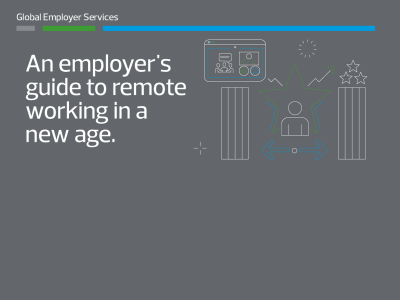Breaking VAT news from RSM's experts around the world, including updates from Belgium, Poland, United Kingdom, France, United States and Germany
BELGIUM
Option to tax being introduced on B2B Property leasing
From 1 October 2018, proposed changes to the Belgian VAT provisions will have a significant impact on property transactions in Belgium by introducing an option to charge VAT on the otherwise VAT-exempt transaction of B2B letting of immoveable property. Belgium is one of the last EU Member States to introduce such an option to tax for the property sector. Although the new legislation has not been formally approved yet, the following should be considered in order for an option to tax to be effective under these provisions:
- both parties must opt;
- the building must be used for the taxable business activity of the lessee;
- the option to tax is only possible for new buildings (first taxable event after 1 October 2018)
- the normal VAT reversion period of 15 years will in this case be extended to 25 years.
What this means
This reform has been hailed as one of the most significant changes in the Belgium VAT legislation of the last decade and is expected to provide a welcome boost for the real estate sector in Belgium by potentially removing an, often significant, VAT cost from the supply chain.
Businesses should therefore consider whether exercising an option to tax in those circumstances would represent the most efficient solution to mitigate otherwise irrecoverable VAT in the property investment sector.
The Belgian Minister of Finance announces leniency for VAT fines
The Minister of Finance has recognised that fines for VAT misdeclarations are often too stringent disproportionate, not only in terms of the amounts, but also because the nature of the offence is not (always) taken into consideration. Hence, the Minister has instructed his administration to develop a new policy to deal with this issue.
The new policy is based on the principle that the taxpayer acts in good faith.
The fine imposed will be waived in full upon the company’s request if the following conditions apply:
1. it is a first offence of this nature within a 4 year period;
2. the offence was committed in good faith. Good faith is presumed. The burden of proof is on the authorities to prove otherwise;
3. the offence committed has no overall impact on the amount of VAT due.
What this means
In practice, this means that, for example, the VAT fine regarding an amount inserted in the incorrect box of the VAT return, with no impact on the amount of VAT due, or the late submission of a VAT listing, or issuing an invoice that does not meet the formal requirements, will be waived upon request of the company.
If the taxpayer acts in good faith, the VAT administration and the Special Tax Inspectorate must apply these guidelines for all requests regarding fines imposed from 1 January 2018.
Kaatje Bondewel, RSM Belgium
Poland
Polish government withdraws requirement for filing VAT returns
The Polish government has announced that the requirement to file VAT returns will be removed from next year. This is as a result of the introduction of Standard Audit File for Tax (SAF-T) in Poland in mid-2016.
The continuously improved and more effectively analysed data contained within SAF-T has been required to be submitted on a monthly basis by all VAT-payers since 2018. Since then, the SAF-T system, better known in Poland as “Jednolity Plik Kontrolny” (JPK), has been the primary source of quantitative information for the tax authorities. It gives broad knowledge of all the transactions carried out by all businesses in Poland – both their purchase and sale transactions.
What this means
The confidence put in JPK is not surprising. It allows immediate (almost in real-time) comparison of data included in all VAT registers prepared by Polish VAT-payers. Planned changes will inevitably result in a reduction of administrative burdens for the taxpayers. However, the data previously included in a VAT return will still have to be settled and reported using SAF-T.
The stated intention of the authorities in introducing SAF-T reporting (in line with similar digital requirements which have been or are being introduced in a number of countries) in reducing tax fraud and increasing the tax take, is alongside the overarching benefit of providing the authorities with significant amounts of real time data to enable them to carry out compliance checks on an ongoing basis.
Transfer of property by a public authority – Transaction is subject to VAT even if the payment is only an internal accounting transfer and the authority continues to manage the property
The Court of Justice of the European Union (‘CJEU’) has issued the judgement in the above Polish case. It has ruled that a transfer of ownership of immovable property belonging to the municipality to the Public Treasury, payment for which is by way of an internal accounting transfer, should still be regarded as a transaction subject to VAT where the same authority simultaneously represents both the municipality and the Public Treasury and where the municipality continues the ongoing management of it.
The dispute between the Polish Finance Ministry and the Municipality of Wroclaw was related to the specific structure of local authorities in Poland. The hierarchy of local authorities in Poland is organised as follows: the first level is the gmina (municipality), the second level is the powiat (district) and the third level is the województwo (regional authority). A miasto na prawach powiatu (city county) is a municipality that carries out the tasks of a district. Such city county is a conglomerate of competences and funds of a municipality and district. A president of a city county represents simultaneously a city county and the interests of the Public Treasury in matters of the immovable property management.
In the facts of the case the ownership of property belonging to the Municipality of Wroclaw (city county) was transferred, in accordance with national legislation and in return for the payment of compensation to the Public Treasury for the purposes of the construction of a national road, The Municipality of Wroclaw has been continued the management of the relevant property. Furthermore, the payment of compensation was only by means of an internal accounting transfer within the budget of the Municipality of Wroclaw. The dispute between the Minister of Finance of the Republic of Poland and the Municipality of Wroclaw concerned whether the transfer of ownership of the property ‘paid for’ by way of the compensation, was nonetheless subject to VAT.
The CJEU has confirmed that the transfer of legal title in such circumstances is sufficient to bring the transaction within the scope of VAT. This is because three cumulative conditions had been satisfied: (1) there has to be a transfer of a right to ownership; (2) transfer has to be done by order made by or in the name of a public authority or in pursuance of the law; (3) there is required to be payment of compensation. Furthermore, provided that the payment of that compensation has become effective it is irrelevant that the payment was made by way of an internal accounting transfer and not physical payment of money.
What this means
The judgement, whilst relating to the specific ways in which public authorities are structured in Poland, nonetheless establishes an important principle that there can be a supply subject to VAT even if there is transfer in legal ownership and not physical payment per se.
The fact that the transaction takes place within local authorities not otherwise regarded as being in business for VAT purposes, does not in itself change the analysis, and such entitites should carefully review transactions involing properties to ensure that the VAT cost is identified and properly managed at an early stage.
Przemyslaw Powierza, RSM Poland
United Kingdom
VAT incurred on purchase of equipment not sufficiently linked to business activities
The UK’s Upper Tribunal has dismissed the appeal of JDI International Leasing Ltd (‘JDI’) finding that the First Tier Tribunal was correct in ruling that the VAT incurred on the purchase of highly specialised oilfield drilling tools (the UK Tools) did not have the requisite direct and immediate link between the acquisition of the Tools and JDI’s economic activity (the sale of spare parts).
The company, incorporated in the Cayman Islands leased, and then bought, tools from a UK VAT registered company, and then leased them to a Netherlands group company for no consideration. It made a claim for repayment of the input tax under the 13th Directive; HMRC refused the claim on the grounds that there was no economic activity, because there was no consideration.
The company argued that it had an overall economic purpose as It made taxable sales of spare parts (separate from the tools that it leased in and leased out intra-group) and, on the basis of the earlier CJEU ruling in Sveda, argued that the input tax on the leasing of the tools related to the whole of its economic activities and should be allowed.
What this means
This ruling provides further complexity to the nature of input tax recovery around the extent to which the supplies in question can be attributed to taxable business and at first sight goes against the principles established in the Sveda (and similar) cases.
It was clear from the relevant case-law that the existence of a ‘direct and immediate’ link or whether the purchase are part of the inherent cost of making taxable business sales, and whether the taxable person is acting as such, have raised very similar issues. Sveda refers to both these issues as requiring consideration of the taxpayer’s intentions, supported by objective evidence.
In this case, the First Tier Tribunal has earlier established that, whilst the Tools are designed for commercial exploitation, it was a stated fact that JDI decided immediately after acquiring them that it would not to exploit them for consideration, but instead leased them without charging any lease rental. Whilst it was also undoubtedly true that the sale of spare parts was an economic activity, it was correct to conclude from the established facts that there was not the requisite ‘direct and immediate link’ between the acquisition of the UK Tools and JDI’s overall economic activity in the supply of spare parts.
Clear intentions that particular assets will not be sold or exploited commercially, whatever the wider activities of the business, will inevitably lead to difficulties in attempting to justify VAT recovery, and care should therefore be exercised in the light of this ruling.
France
No VAT recovery if goods or services are not actually supplied
In a recent decision in respect of two joined cases (C-459/7 SGI & C-460/17 Valériane), the CJEU has stated that VAT related to activities which have not actually been carried out is not recoverable.
SGI and Valériane are two companies located in La Réunion, a French overseas territory, whose VAT rules mirror EU VAT. Both companies’ activities consisted of buying goods which would then be leased to other businesses.
During a tax audit, the tax authority considered that SGI and Valériane had recovered VAT related to goods which had not actually been physically delivered and, as a result, denied the right to recover VAT incurred in relation to these transactions.
The companies each challenged the tax authorities’ position by claiming they had acted in good faith, i.e. that in absence of any indication of fraud, they were not required to prove that the transactions had actually taken place in order to justify recovery. As a consequence, they claimed that they should be allowed to recover VAT on these operations.
The CJEU, in rejecting the taxpayer’s arguments, has ruled that VAT recovery is fundamental to the supply in question having taken place (of goods or services), that the authority is justified in refusing recovery in this case, even though there was no evidence of fraudulent intent.
What this means
Firstly, on an administrative point, the CJEU has confirmed its jurisdiction in respect of VAT issues which arise in EU countries’ overseas territories outside the EU (where VAT has been implemented by national law following the same rules as those applicable in the EU)
In respect of the principles in this particular case, care must be taken to ensure that the supplies in question have actually taken place, and that VAT is properly due on it in order for VAT to be considered for recovery. If, for any reason (which maybe unconnected with fraudulent behaviour) the supply does not take place then VAT recovery is unlikely to be possible. Secondly, the sole fact that an operation has not been actually realized forbids the taxpayer.
Receipt of property rental rent from a subsidiary can be regarded as active management by s holding company
The CJEU stated, in Marles Participation, that a holding company is considered as exercising active management and control in its subsidiary’s management when it rents real estate to the subsidiary, thereby resulting in recovery of VAT on overhead expenses.
Marles Participation is a holding company which owns building leased (with an option to charge VAT on the rents) to one of its subsidiaries, but provides no other services to its subsidiaries.
The group undertook a reorganisation and Marles Participation incurred costs related to purchase of shares in a company which became its subsidiary. The company recovered VAT related to these expenses, and this was challenged by French tax authorities.
It is settled case law that, on the one hand, cost related to purchase of shares are overhead costs and, on the other hand, that a holding company is allowed to recover, totally or partially, VAT related to its overhead expenses provided that it exercises active management and control of its subsidiaries.
The tax authorities considered that Marles Participation did not provide any accounting, legal, or administrative services, to the subsidiary, and therefore rejected the right to recovery VAT on the costs of purchasing the shares in that company.
The CJEU however, has stated that the management of subsidiaries can result from administrative, commercial, accounting, financial, technical or IT services but not exclusively so. Active management and control is characterized by any operation which is regarded as an economic activity from a VAT point of view, i.e. a permanent activity which has a benefit for the customer and where it exists a direct link between the price paid and the service provided, and on which VAT is accounted.
As a consequence, the taxable leasing of real estate (under an option to tax) is an economic activity by which Marles Participations undertakes the management services. Thus, the holding company is entitled to recover VAT on its overhead expenses, all other requirements being filled.
What this means
This decision reinforces the importance of considering the activities (or intended activities) of a holding company, when deciding whether VAT on the, often not insubstantial, costs of acquisition are recoverable. This judgement is helpful in widening the scope of activities that justify VAT recovery but is a reminder that care should be taken to manage the VAT position.
Alexandre Soumaille, RSM France
United States
The U.S. Supreme Court has recently issued its highly anticipated decision in South Dakota v. Wayfair, where it has found - overruling an earlier judgement in the Quill case – that a physical presence is no longer the constitutional standard for determining whether or not a seller has a sales tax registration and filing obligations in a state. In jurisdictions where businesses do not necessarily have a physical presence and previously were not required to register/file for sales tax, such businesses could well face such obligations due to the amount of revenues generated or transaction counts in a particular state.
What this means
The Wayfair decision potentially has ramifications far beyond South Dakota, given the authoritative nature of the judgement from the Supreme Court and will have significant implications for almost all industries and has certainly created many more questions than answers with regards to sales tax.
It appears that on the back of this judgement, states are now permitted to enforce remote sales tax collection based solely on the concept of ‘economic activity’ taking place there—even in states where the retailer has no physical presence. Retailers in particular that sell through channels besides a brick-and-mortar storefront, such as online, phone, or catalogue, will need to consider the impact of the judgement as they may have to register for, and charge sales tax depending on where the consumer resides.
Almost two dozen states have already addressed economic sales tax nexus laws or regulations in response to this judgement, with more expected to follow suit. Adapting business to the new U.S. sales and use tax landscape will take time, but there are clearly key considerations to think about now.
Andrienne Albritton, RSM US
Germany
VAT Liability for Providers of Online Marketplaces
In common with a number of EU member states keen to crack down on the high incidence of typically overseas retailers selling goods destined for private consumers and not charging or accounting for local VAT (the UK, for example introducing similar provisions in 2016), Germany has acted to propose a law to ensure that online marketplaces trading in Germany are made jointly liable for any unaccounted for German VAT on such sales. If enacted it will come into effect from 1 January 2019.
What this means
These proposals would, if enacted, impose a significant additional administrative burden on German online marketplace operators. Under the proposals, such marketplaces will be made liable for any unpaid VAT resulting from supplies sold through its platform unless they were to keep extensive records of such transactions where delivery either starts or ends in Germany.
An online marketplace for these purposes is any website or similar which provides a platform for a third party operator to make sales through, and the operator of that website is the entity that would be impacted by these proposals.
A key document that such marketplaces will be encouraged to maintain is a ‘tax clearance certificate’ from the overseas seller, as this will help in avoiding a ‘third party’ liability for the marketplace. It is to be expected that marketplace operators will ban traders from their platform – especially from countries outside of the EU where no tax clearance certificate can be obtained. Future developments with respect to this should therefore be monitored closely by those impacted.
Christopher Knipp, RSM Germany







